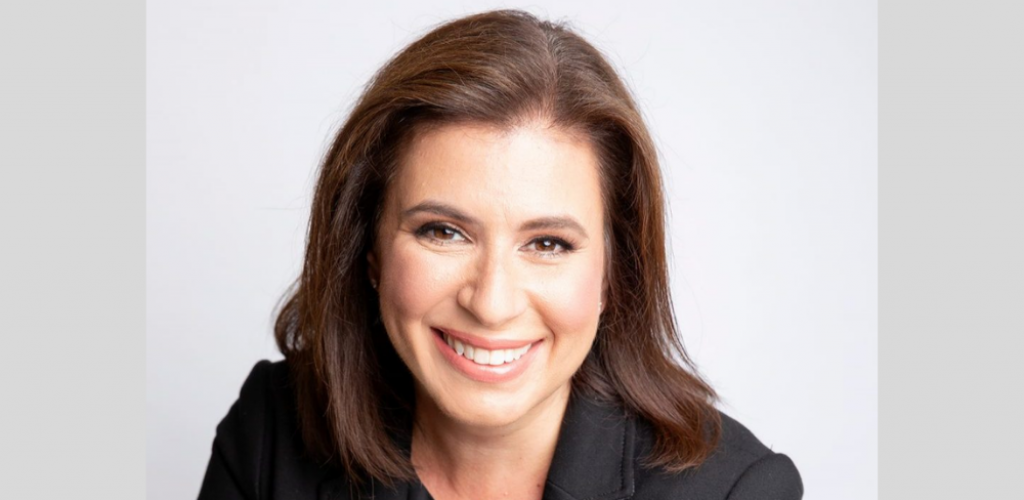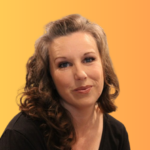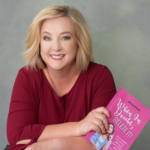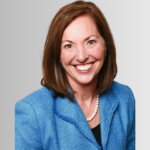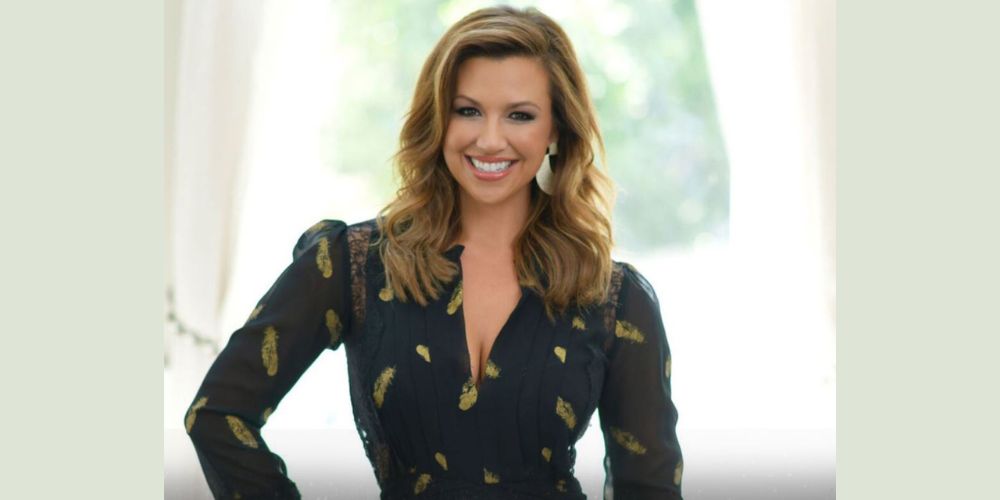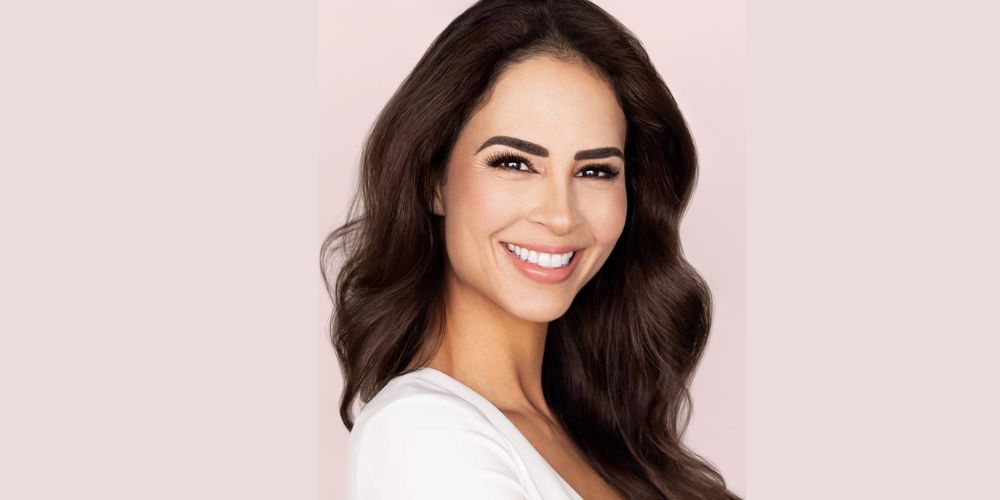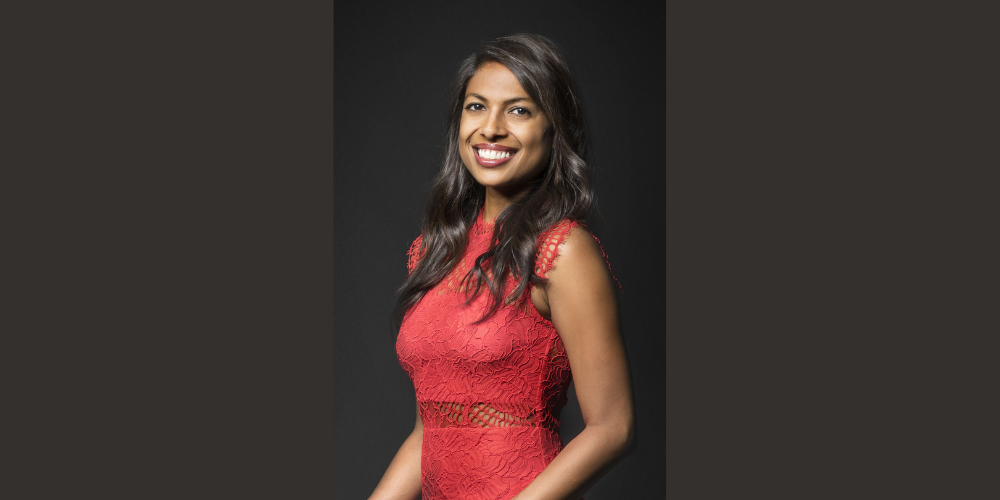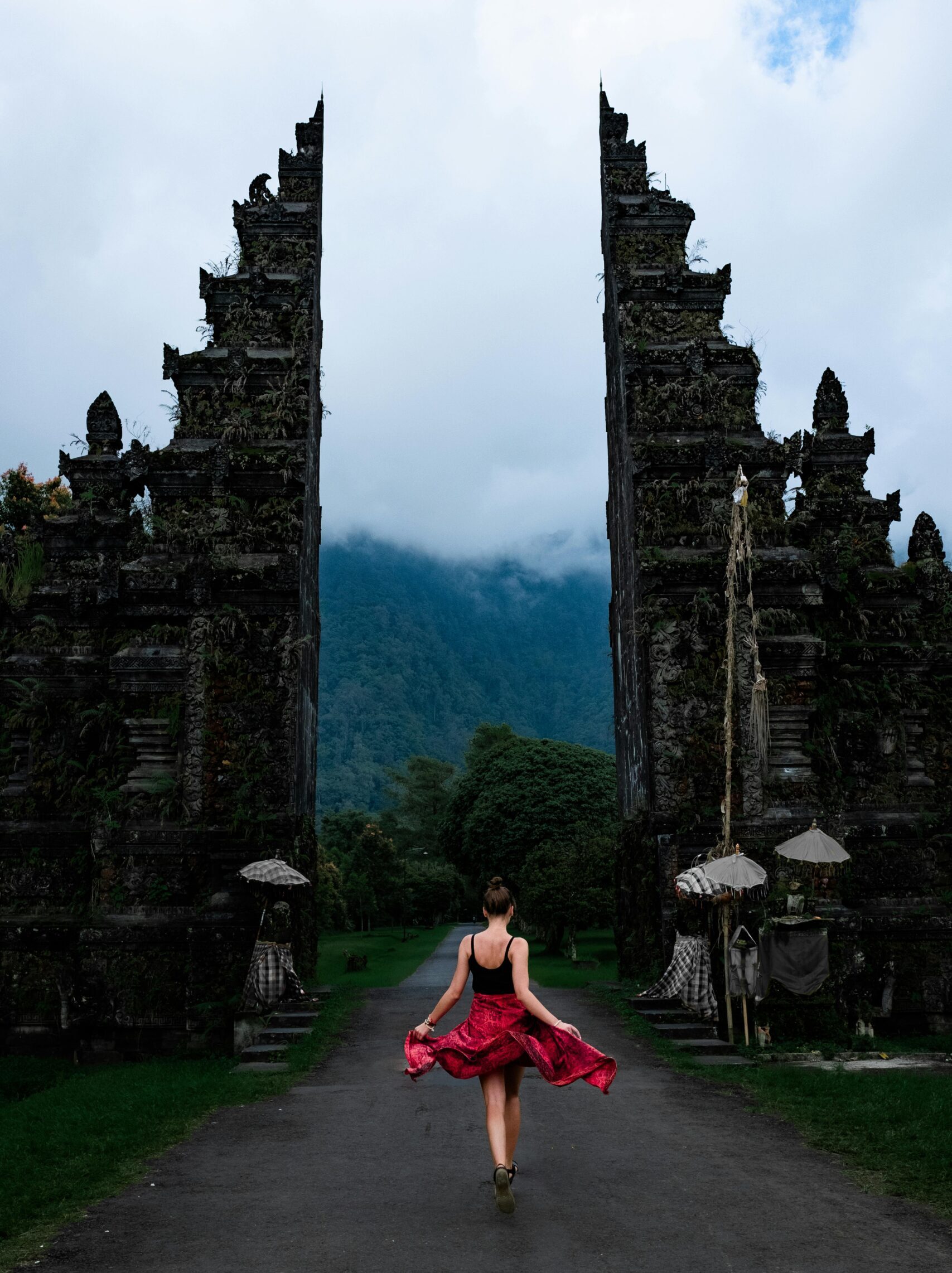Raj Girn: This week, our focus is branding and marketing, where I’ll be chatting with the multi-award winning journalist and storyteller and co-founder of KPW Communications, Naomi Parness, in an episode entitled How to Use Virtual Events to Market Your Business.
Naomi’s extensive 20-year career in media has seen her tenure on CTV in Canada, as well as stints at CBS and New York One in the United States. She is the recipient of the Edward R. Murrow Award for Best Documentary and the National and Regional RTNDA Dave Rogers Award for a five-part special that she did on Nazi camps.
Here is our conversation:
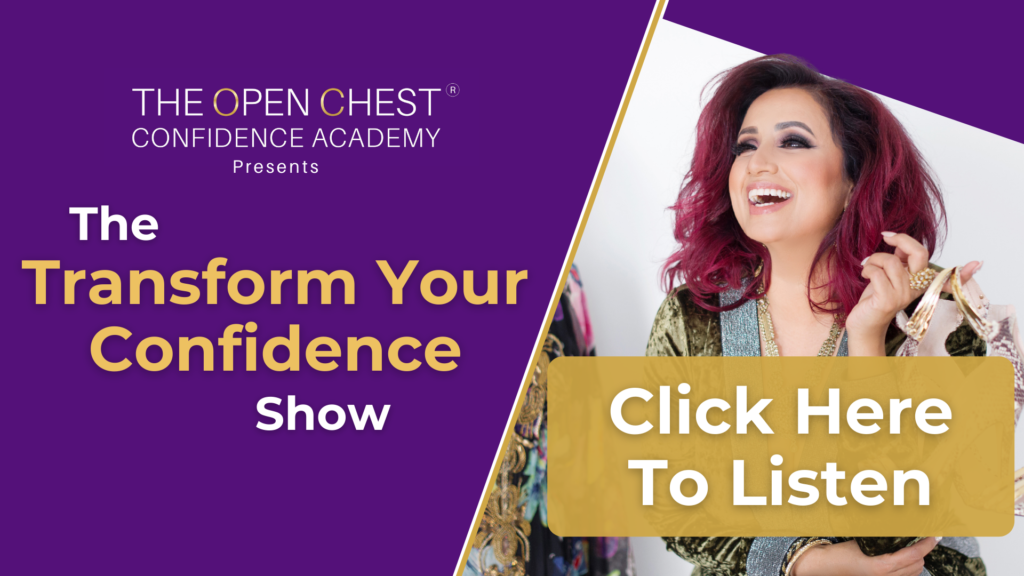
Raj Girn: I am so pleased to have you on Naomi to talk about all things virtual events. Thank you so much for agreeing to be on.
Naomi Parness: Thank you so much for having me. Such a pleasure to be here virtually to talk about virtual events.
Absolutely. So, Naomi, what I want to do is I want to kick things off by asking you to share a little bit of your career trajectory so we can bring everyone up to speed about the extensive experience of your storytelling prowess. Tell us a little bit about that. It’s been two-decades long.
Longer actually, because it was two decades in journalism. And then since then, I’ve actually been out of CTV for I don’t even know — the pandemic, you know, the years or so. I think it’s been seven years. But I wanted to be a storyteller since I was a little girl. I always was telling stories to my class in kindergarten and writing little books and they knew everything happening in my family. So I was I was always interested in telling stories, and I knew actually pretty early on when I was 16 years old that I wanted to be a journalist. Which is very early, and I understand that not a lot of people know what they want at that age.
But because of that, I started working very early. I went to Ryerson Radio-Television Arts Program in Toronto, and even while I was in university, I already had a show on a local cable network, and I knew that this is what I wanted to do. So that’s why I went to New York actually the summer before 9/11 and then left a few weeks before 9/11 and then returned the summer after to work on a nightly show about 9/11. So I was working in the industry during university and then graduated went to a small market, which is what you got to do because you got to learn how to tell stories.
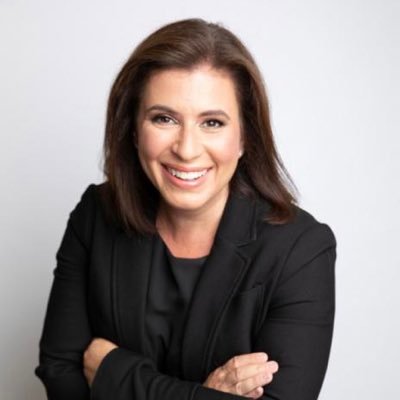
So we went to a very small market outside of Toronto. It was Peterborough. I then worked in another market called Barrie. Then I was in Toronto. So I was reporting, doing breaking news, covering City Hall. I was a City Hall reporter, the education reporter. And I had kids in between all that time and it was hard. It was a really hard job as a mom. There’s no balancing I don’t think at any point. But it was hard even just to manage. So I decided to leave that dream career that I had had for two decades and didn’t know really where I was going. But I know that I loved to tell stories, and I knew that was something I wanted to keep close to me.
I ended up working for a charity for a few years that was also close to my heart. My grandparents are Holocaust survivors, so I worked for a Jewish charity and I was doing storytelling for them. But then I realized I just wasn’t meant to work in an office space. You start to learn things about yourself. I had been out on the road as a reporter for many years and I decided to start my own company. I was approached by a friend of mine and we came together and we formed KPW Communications and it’s been . . . You talk about trajectory. I never imagined being here. Like I said, I knew I wanted to be a reporter since I was 16, but I never imagined owning my own company. And we started our company right before the pandemic.
So of course it was not the best time to start a new company. But the most amazing thing happened, and that is that I stayed very true to my roots. I was really interested in continuing to do video storytelling. Our company does communications and my partners do media relations and government relations and branding and all sorts of different things. But I stayed true to my video content that I’m passionate about.
So during the pandemic, like right at the beginning, all these companies that I would work for before came to me and said, we had all these live events. What are we going to do? And that’s how we started doing virtual events. It just happened because of a necessity. And I know we’re going to talk so much about it here on the show. But it really has been an incredible advantage for companies to be using. And I know we’ll talk about some of the benefits, but virtual events have really framed this pandemic. I mean, this is how people have been connecting throughout the pandemic, and it’s been an incredible new resource for many companies.
“Virtual events have really framed this pandemic. This is how people have been connecting throughout the pandemic, and it’s been an incredible new resource for many companies.” ~Naomi Parness
Absolutely. And I can’t wait to just dive into that. But for anyone out, that does that doesn’t really understand the importance of storytelling. Can you share just generally speaking, what storytelling is and why it’s important in today’s world?
Oh, stories are everything. I love people’s stories. But that’s what inspires us. That’s what makes us happy. It’s what makes us cry. It’s what makes us sad. Stories are what bind us together as humans. I love people’s stories. I always have. And companies have such an advantage when they tell their cause in the form of a story.
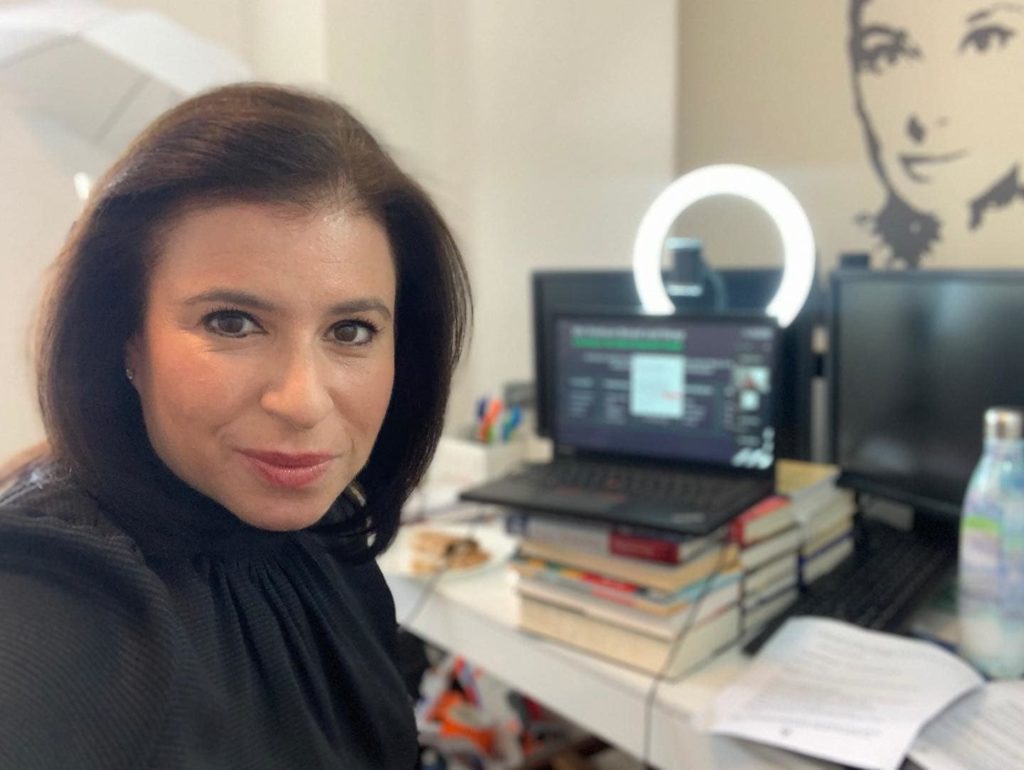
Before the pandemic, I would work with charities or bigger companies, profit and nonprofit, and tell the story of what they’re doing. I mean, that is what people are attracted to: why you’re doing what you’re doing, what is the reason behind it? And for the charities that I work for, we tell the story of the people they help. So, you’re telling personal stories about people who are being impacted by the money that people are giving. There’s no better way to make someone passionate about your cause or your company than them feeling the emotion of the story.
“There’s no better way to make someone passionate about your cause or your company than them feeling the emotion of the story.” ~Naomi Parness
So stories, to me, are the basis of everything. It’s what we all connect with. It’s what we’re all. We’re always searching for those great stories. And companies have great stories usually about even how they’re formed or some companies have generations of family members that have been part of the company. That’s a story in itself, maybe not even necessarily what they’re doing, but there’s always a story.
So I love helping companies find the story that’s best to tell. And I really find that it has helped in terms of a charity for them to raise money. I mean, that’s when people are connected with and attracted to is the work that they’re doing and how they’re helping. So we’ve been on the ground, especially during the pandemic, we showed a lot of the work that these charities were doing to help people, to bring them food. They had volunteers who were calling seniors to check-in. So we covered all of that and we showed the human side of everything, and that’s the side that really pulls the people’s heartstrings 100 per cent.
And I guess that’s the crux of telling a really good story is to be able to create this human connection with people that we don’t know. Right?
Yeah, 100 per cent. And that’s why we love them. I mean, it’s from movies to books. There are always these stories that we are so drawn to, and you’re right, that’s how we connect. And I think it’s interesting during the pandemic, just as an aside, I found that people were . . . obviously it was so hard at the beginning and there was so much sadness and uncertainty and anxiety. And so I started something called The Good Stuff, which was just me compiling videos of good things that I saw.
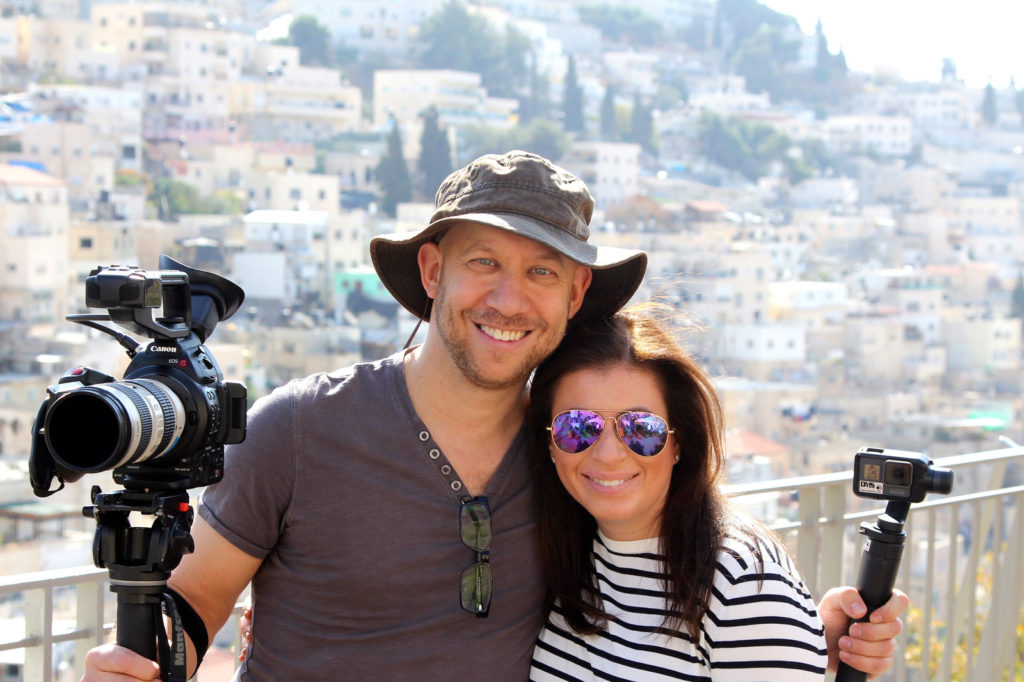
But it’s amazing because that was just an example of how all these people who would watch every week when I put these videos out were so happy because they saw these great stories of people who were doing amazing things. You’ll remember at the beginning when everyone was banging pots and pans for the health care workers and singing songs from balconies in Italy. And it’s the stories that make us inspired, that make us feel and that bring us together. You’re right.
Absolutely. So Naomi, I want to ask you this. Those brands and companies that have moved into the virtual space, they’ve done so for a couple of reasons. Some have done it because events have always been a part of their portfolio pre-pandemic. And other people are looking at doing virtual events to reach audiences that they don’t really know from a marketing perspective.
So I want to ask you this: You’re involved in the virtual event space on the content and production side. What is it that people need to know in terms of the differences between doing an event in person versus doing one virtually, aside from the obvious, which is where you’re not in a physical space?
It’s hard. It was a hard transition and we’ve learned a lot since the beginning. So our the first virtual show I did is way different than the ones we’re doing now. And what we’re doing now are way more visual, way more interesting. It’s hard to keep people’s attention when they’re sitting in front of a computer. And because we’re all watching so many virtual shows, you really have to get creative now because some people are done. Virtual shows have actually become something that I think will continue. I don’t think they’re going anywhere. I think if anything, we’re going to see a hybrid, which is going to be in-person events that also have virtual because I think what companies have really come to realize is the advantages of virtual, which is, first of all, you don’t have to pay to have someone fly to come to your conference.
“Virtual shows have actually become something that I think will continue. I don’t think they’re going anywhere. I think if anything, we’re going to see a hybrid, which is going to be in-person events that also have virtual.” ~Naomi Parness
Conferences that I’ve emceed or produced or been part of can bring in people from Australia, from the States, from all over the world to be part of this together. So, it’s cost-effective. It brings people together from all over the world. And they found that people who necessarily wouldn’t have been able to be part of it before can now be part of it because it’s easier. It’s easier to connect, obviously from wherever you are to watch these virtual events. You have a much broader audience. And in terms of companies that would have celebrities per se or people who they’d have to hire like speakers to bring in, they don’t have to bring them in. So it’s much easier to get access to people who you may not have had access to before because you don’t have to bring them in. I’m in Toronto, so you don’t have to bring them into Toronto. You can bring them in from wherever they are.
So we’ve had shows with Joan London and with Dr. Ruth and all sorts of different people, Henry Winkler. They were in their house so it was great. We were able to do these shows with people from home. And lots of funny things happen when people are at home like their cat walks across the screen or their dog or their kid is screaming in the back. But it’s also humanized all of us because we understand that we’re all in this together, really. And so I think a lot of companies have really seen the advantage to it, which is why I don’t think they’re going anywhere. I think, as I said, there will be a hybrid. So they’ll do in-person events, but they’ll do a virtual element always. Because I think they realize that you’re leaving out an audience now who you didn’t have before.
Why did these companies decide to do it? Some of them had events. So in the case of the company I was working for, the Walk with Israel happens every year. They couldn’t do it in person. They decided to do it online. Women’s Brain Health Initiative is a charity that I work with. Now they do a lot of virtual events, but they did a lot of events in person before. And you know, we did an event with Jan Arden. She did it live in the sense that we were there filming her, but we then did the event virtually because we couldn’t bring in audience members. So this was at a time when we could have a few people on set because it was during a time when the COVID rules were a bit more relaxed.
So we went. We had a crew, we filmed her, but then put together a beautiful virtual show, which people could then attend from home. But we were able to do it with Jan Arden, and it was great because that’s not something that you would normally have been able to do. You’d have to bring her. Do you know what I mean? She was here. She happened to be in Toronto, but the audience would have had to have been there. So there are advantages to it, and I think companies really see that and it is a great way to market yourself. As you said, you have got to make it interesting. A lot of people have watched a lot of virtual shows, so it’s going to be exciting. It has to be engaging. People are coming up with new ideas. We did a magic portion to one of the shows that we had because it’s a way of bringing people in from home so that they can be part of the show. So we had a magician. But some people are turning to entertainment so that they can keep people engaged because so many people have been watching so many virtual shows. So you have got to change it up.
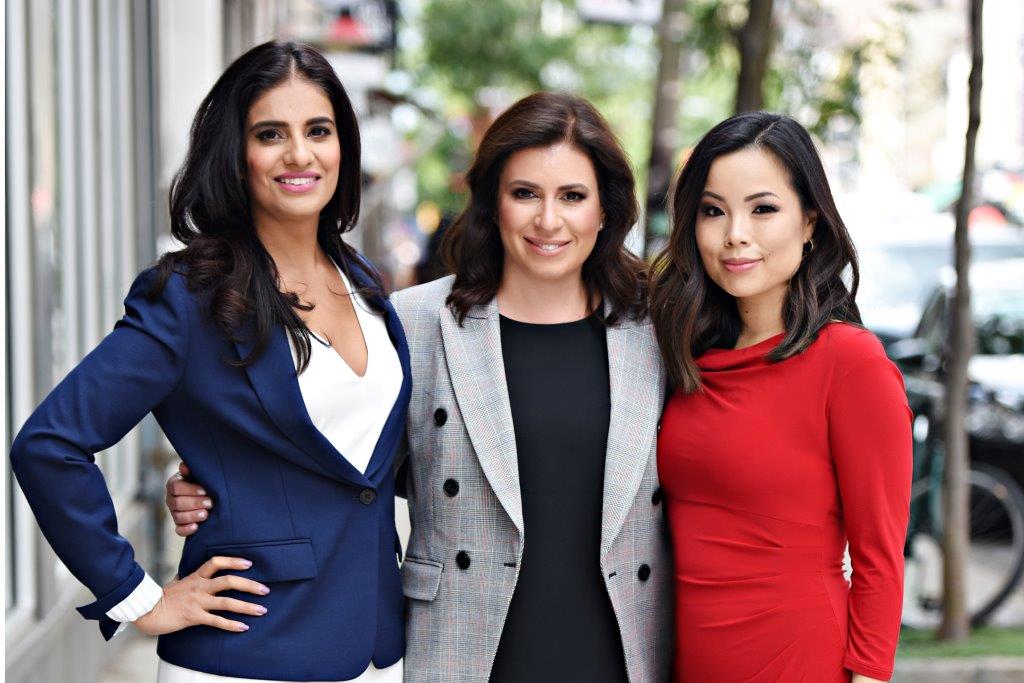
Absolutely. And I think that the added advantage from your perspective is that you are a professional storyteller. So that lends a whole other layer of how do we put this event together? So it’s still telling an engaging story, which is some of what you’re talking about here.
The other thing that I’ve noticed also with doing these virtual events, Naomi, is this whole idea of a hierarchy. You know, the gap between the hierarchy of the people with power, the people that are celebrities and everyday people, we get to be in a room together. This was something that was very obviously a huge gap when you were doing live events like you would know that this person cannot be approached there on the red carpet, this distance from where they are physical to where you are. And all of a sudden, all of those things don’t matter anymore because you’re in the same virtual room.
It’s very intimate.
Yeah. How have you experienced that with the live event experience and energy of it because it’s easier to get the energy component when you’re in a live environment feeling like you’re watching someone on TV, which is what’s going on in the virtual arena.
Well, it depends. I will say, not a lot of companies actually open it up to the public. So if you’re going to do it with a celebrity, it’s not like a Zoom. There are different types of virtual studios now. VMix is one of them, but you would not have everyone in there with you, so you wouldn’t necessarily be able to ask questions. But on some, you can. You know, there are shows where they bring people in and the audience can ask, but a lot of them tend to do a pre-tape so they’re not live. It’s much easier. And because of I mean, there are some issues with virtual, obviously, that you have to think about. If you’re virtual, you’re using the internet. If your internet goes down, you don’t have a show. It’s happened to me.
Oh, my gosh.
Definitely happened to me. You know, the internet can be funny. Sometimes it flickers. Sometimes you don’t hear it. And people are always complaining about technology. So pre-recording is actually a lot safer because when you’re alive anything can happen. The same thing with live television, anything can happen. So a lot of people do end up pre-recording. But yeah, you’re right. I mean, if you have someone in there that you could speak to, it is very intimate, but it is still intimate when you’re watching it from your home, on a computer or on your phone. I mean, there is a different feeling because you almost feel like it’s one on one. You are a little closer than if you were in some big room, right? The actor or the author — if you’re doing a movie — talk like there is a bit more intimacy when you’re watching it from home.
Absolutely. What have you seen brands and businesses do during virtual events from a content perspective? I kind of feel like you’ve answered this, but I want to just encapsulate what you feel is really noteworthy from a marketing-specific perspective.
So everyone gives different things, and I think people are really starting to think outside of the box. I think they’re being forced to. As I said, there are so many virtual events now. So when you’re on a conference now, you can do the networking where you’re all in a room and you can do breakout rooms and you can talk. They have lobbies now where you can meet. So we’ve really evolved in the last few years. But in terms of making it creative, as I said, they’re bringing in different entertainment elements to some of these shows so that people have something instead of just speeches because it’s a lot of these events happen to be a lot of speeches and speaking and you’re talking about the organization or the cause, so they’ll find a way to make it engaging.
So whether it’s bringing in a celebrity who’s going to be your headliner that evening or whether it’s going to be a magician like we used, some type of entertainment value, maybe music. We’ve had a bunch of shows where they’ve had a lot of musicians who have performed throughout the show so that you could change it up. It just really depends on what your show is. If it’s a conference, you’re not going to include musicians. So it really depends. Every show is different. And that’s why I work as a lot of different things, but I’ve hosted virtual events, but mostly I do produce them. So you need a producer who’s going to oversee it, who’s going to help you create a vision of what this is going to be. It’s a lot of work putting together virtual shows. There’s a lot of work. It takes a while and it needs to be properly planned because as I said, there are a lot of things that could go wrong that you need to think of before.
“It’s a lot of work putting together virtual shows. There’s a lot of work. It takes a while and it needs to be properly planned because there’s a lot of things that could go wrong that you need to think of before.” ~Naomi Parness
Absolutely. So for anyone looking to host a virtual event, what are the basic steps that they need to know?
Well, you’d want to get in touch with a company like ours, KPW Communications. We do a lot of virtual events, and I usually then go to a production company that we work with. We work with a few different production companies. I would then reach out to them depending on budget, depending on scales, so we can figure out what’s needed in terms of what kind of show you’re trying to do, what the budget is.
And then you work with the company who will help in terms of building the show. So, as I said, because people are used to virtual shows, we tend to use better technology than Zoom. Zoom is great. I’m not going to promote or tell you to use one or the other, but there are different avenues that you can go to where you can actually build a show so you can build graphics, you can make it look pretty. You can put your company logo in the corner, you can put sponsors at the bottom, you build it so it looks like a television show. So we work on that with the client, and then we work on a run of the show. We work on the elements of the show. We’ll help with script writing. We’ll help to do prerecorded. If it is going to be a prerecorded event, we do that as well.
And then people are making decisions about recording in person and then it’s still being a virtual event, but it does look way better to report in person so you make decisions based on, are we going to record somewhere? Where are we going to record? What’s it going to look like if it’s going to be a live event? You make those decisions too. So there are a lot of things that go into play. But you’ll want to reach out to someone who does virtual events and have a discussion about what you’re hoping your event will look like and how to bring it all together.
You said a little bit in there about price points as well. Now, obviously, like anything, there are all kinds of different price points that you can look at. But if you were to kind of think about a comparison between doing a live event versus a virtual event, is it more cost-effective?
Yeah, for sure. Because you have to rent the venue. So you’re not paying for the venue cause you’re not paying for food. Although that’s another way that people have been changing up virtual events. They’ll send you a food package to someone’s house so that they can eat while they’re watching. Sometimes they send different gifts or deliver cookies to people’s homes so that they can be part of the show. Or if there’s a theme. But you don’t have as many hard costs in terms of the location. A lot of people used to have these events in very fancy hotels, so you don’t have to pay for the venue.
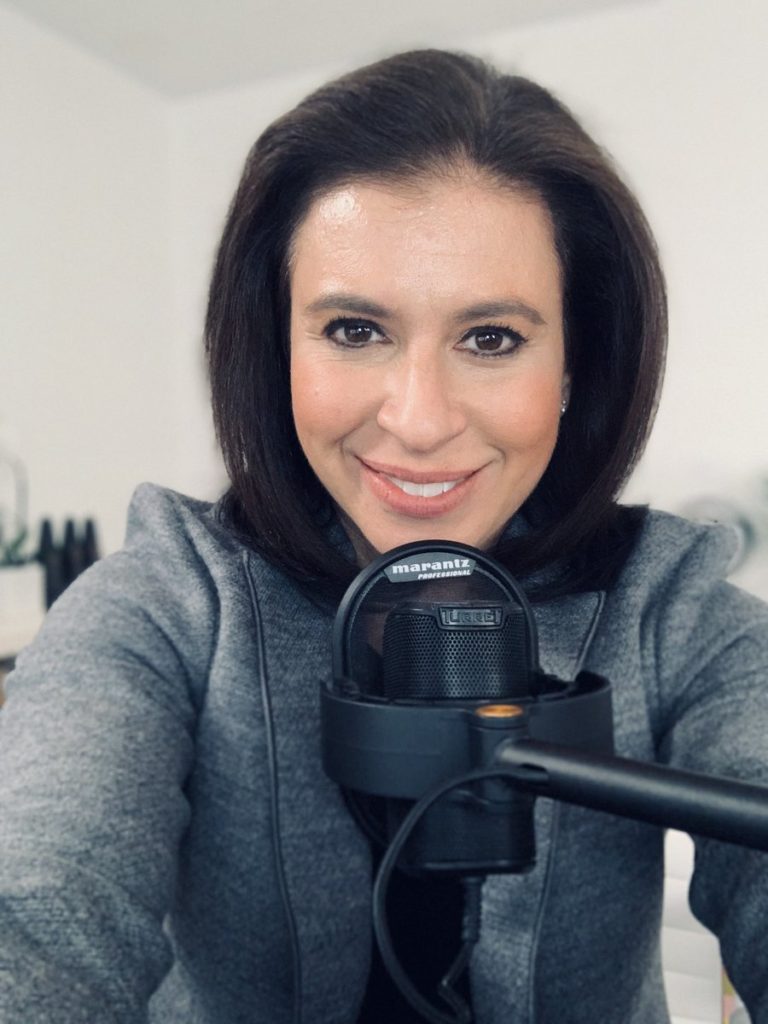
So it’s definitely still pricey because if you’re doing a virtual event that has graphics built-in animation, if you are recording in person and there’s a cost, obviously, to bring a production company to do that. And so it just depends. It depends on your budget and you can do virtual shows for a very reasonable price or you can spend a little bit more and make them look better. It just really depends on what you’re going for. So yes, there is a wide range as there always is with all these things. But there is a wide range and most people will come to me and say, this is what we have and we make it work for what they have.
Is there a range that you’ve experienced, from a low end versus a high end?
It just really depends on what you’re using. Like we’ve done parliamentary receptions on Zoom. They’re in the tens of thousands. Sometimes they can be ten, but it really depends. It really varies. It’s hard to give an estimate because it really depends on what you want. It could go all the way up to $100,000. I mean, it really depends on what you want in terms of what’s in the show? How long is the show? How many times are you bringing a camera out to record something in person? All these things play into the factors in terms of cost. So it’s hard to give any hard cost because it’s different for everybody.
Of course. But the great thing is that there are so many different opportunities to be able to potentially keep a cost down, and skim here and there without it because live events — I mean, I’ve done them for many years for Anokhi, our annual awards shows. I had to have the best of the best venue because it was the only way that I could present the brand on point. And now with this whole idea of being able to do it virtually and of course, graphics play into the mix, how the story is told plays into the mix. And that’s the other thing that I want to put out there.
For many people out there that feel that, you know, I’ve got Zoom, so I can literally just bring a bunch of people on and we can have a combo that is a kind of an event. But it really isn’t as valuable as having a real clear idea of what the objective is that your audience and your sponsors and your partners need to get out of it. And I think this is where you bring in a producer. This is where you bring in a professional storyteller and even a marketing arm to make sure that your bank covers off all of those various different areas.
The reason I’m sharing this with you and Naomi is that I’m hitting 20 years with my company.
Congrats.
Thank you. So, in November is where we’re hitting the 20 years and I normally do an annual awards show and with the environment being what it is, I’m too scared to do an in-person live event. So I feel that I’ve got to bring the glitz and glam because that’s what the brand is. I’ve got to bring the glitz and glam into the virtual arena, so I’ve got to bring in the pros to do that right? And this is why I’m sharing this and why I feel this episode is just so important because I’ve also had a lot of people come to me and say, how do I make my brand look virtually the way I can present it in a live arena? And here’s the answer. The answer is to work with someone like you and with your company.
To work with professionals who can build that because that’s exactly what we do with the production companies we work with. I mean, we’ve done The Women of Action Show for Israel Cancer Research Fund, and they always held it at the Royal York in Toronto, which was a very fancy event. People would get very dressed up. So we then transferred that virtually. But you create that, you create it with graphics. You create it with the colours. We used gold in the background. So there’s different things that you can do to create that mood and different ways that you can put together the show so that you recreate what you would normally have done in person and you bring it online so that you don’t lose anything in your branding. You want it all to remain consistent. So that gets built into the show so that people feel that they’re with your company the same way that they would have been if they were in person.
Absolutely. You know, I’m going to be hitting you up for a call there, don’t you?
I’m ready. I’m ready. Listen, I’m so grateful. Like I said, I would never have imagined that I would be here right now in 2022 to doing what I’m doing and having started this company right before the pandemic. But really just being thrown into this because, as I said, it was a company I had worked for and they said, here’s this event, what are we going to do? And we came up with this virtual show and then since then we’ve done so many. So I’m very grateful and I don’t lose sight of the fact that so many people have really suffered during the pandemic financially and businesses have really suffered. And I’m very grateful that we were able to find a way to help clients and to make this work because it was great. It’s been great. It’s been a very busy few years and I’m very grateful for it.
Absolutely. And for all those people out there that feel that you build it and they will come is the only thing that they need to do that there are other ways to be able to get and tap into audiences that are targeted. Audiences that fit your niche audience will help you grow and sustain and also advocate for your business. This is a really viable way to be able to tap into that.
Well, who doesn’t want to attend an event from home in your sweatpants and then wear your blazer on top and in your sweatpants on the bottom. I mean, there’s been some real advantages
There certainly has. Absolutely agree.
I know some people are very excited to go put their heels on. And to go out in a party dress, but most days, I’m very happy that I can wear the blazer and just attend from home. I mean, it’s a lot easier. It’s a time saver for sure.
Absolutely. It really is. So to encapsulate what we’ve been talking about, Naomi, what are the benefits that you’ve seen through your participation in virtual events over the course of these last couple of years, hosting, producing and everything in between, that you feel business storytellers have over those people who are not using virtual events to be able to tap into new markets and to engage even their existing consumers? Can you encapsulate that for us?
I think you’re really missing out if you’re not doing virtual events. As I said, we’ve attracted audiences that you didn’t have access to before. There is an issue with inaccessibility in terms of just people who don’t have access to the internet. That’s a whole other issue and a whole other show. But most people who do have access and we’ve all gotten very used to working from home and having our whole life here at home. I think it is an audience that there was sort of untapped before. You can bring in new people to be attracted to your cause to your company, and you can bring together people from all over the world where you couldn’t do that before. And this is a way that is cost-effective, that is more engaging in some ways, and you can cover ground that you hadn’t covered. So that’s why I said companies who are returning to in-person events are still saying that they want to do a hybrid because they know that there is now this audience that they’ve brought in virtually over the last few years that they don’t want to lose. So I really do think you have to think outside of the box now. We’ve learned that over the last few years we’ve got to be thinking differently and this is one of the ways that you have to think differently as a company.
“I really do think you have to think outside of the box now. We’ve learned that over the last few years we’ve got to be thinking differently and this is one of the ways that you have to think differently as a company.” ~Naomi Parness
Absolutely. Is there anything, Naomi, that you feel that I haven’t asked that you want to kind of put out there to everyone as we get ready to close off?
No. I would just say, I really think my career is the same sort of story as the pandemic. You really never know what’s going to happen, so you just got to go with it. And I think that companies really struggled with what to do during this time. And I think those who just went with it and were like, okay, we’re just going to do this and we’re going to see how it works. And then you make it better and you improve because as I said, the first few shows we did don’t even compare to the ones we’re doing now. So we’re still learning. This is a learning process. We’re making changes, we’re getting better. And I’m always interested to see stuff people are doing. So if people want to send me some of the shows they’ve loved to watch, then I’d love to see that too.
I have big problem with just letting things go because I’m a very Type-A personality. I like everything organized, like to know where things are going, like to know what the future is. But I think we’ve all had a bit of a big wake up call over the last few years, and we just sort of have to let go a little and let things take their course. So I think that’s what has happened in this virtual space. It’s just going with it and understanding that things won’t always be perfect. Some shows don’t end up making it because the internet goes down, but we’re all here doing this together at the same time and learning and it’s a learning process, so it’ll continue to change, and I’m interested to see how it changes over the next few years. But it’s great it’s so innovative. I love it. And so I’ve really enjoyed doing these shows over the last few years. It’s been great.
Absolutely. It’s like, the way I see it, it’s the marriage between traditional events and traditional media and technology and A.I. and all of these fabulous things and it’s just I see that the future of virtual events is only going to get more and more expansive as we go out there because the opportunity to be able to do an event and have anyone in the world attend it. Yeah, what an opportunity for your business, right?
It’s been great and it has been really interesting to bring in guests from all over who can speak together on a panel, right? It’s great. It’s really been really interesting. So as I said, there are a lot of advantages. There are disadvantages too. And I know people really do miss being in person in the social aspect, but they’re finding ways to connect people online as well. So as I said, these lobby rooms at conferences or virtual conferences, but they’ve found ways to connect people. So thankfully it is the way we have connected, right? And I know that’s why I don’t get so mad at my kids when they’re on screens all the time, because I know that’s how they’re connecting with their friends and it’s the same thing in business. This is the way that we’re connecting right now.
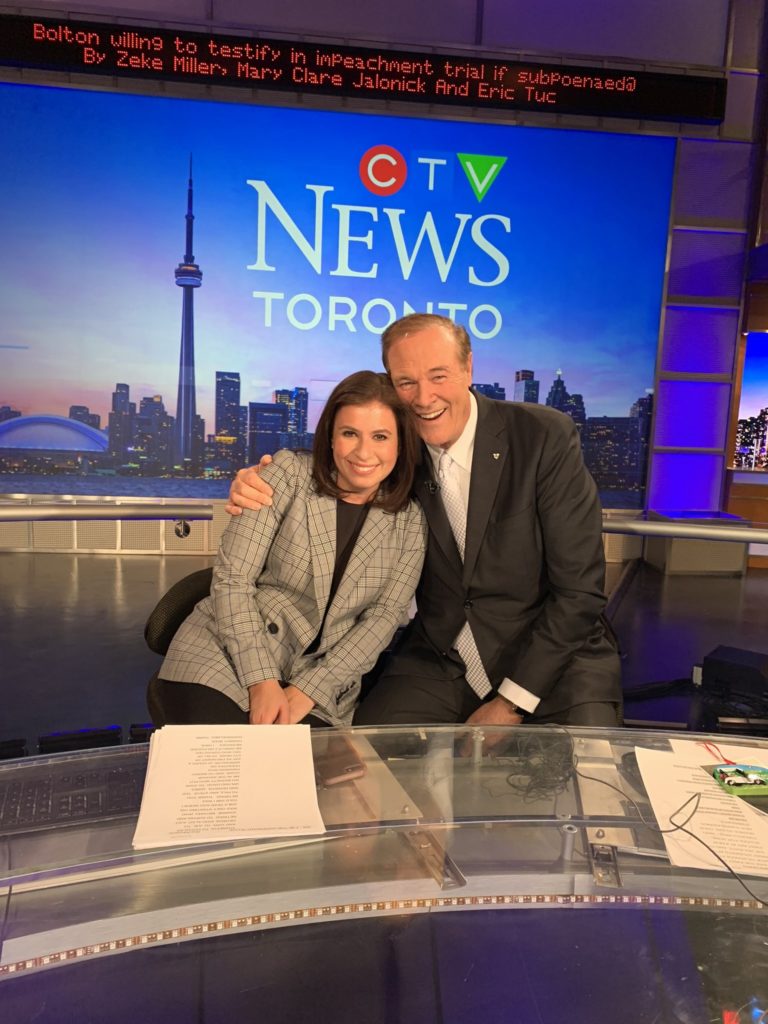
Absolutely. Naomi, anyone out there that is looking to get more information and just to find out how this opportunity could work for their business. Where should we send them?
You can go to kpwcomms.com. You can also get in touch with me on any of my social networks. I’m on LinkedIn, I’m on Facebook @naomi.parness, I’m on Instagram @nparness33. I am on Twitter @naomiparness. So all the social avenues, I’m usually on them. But yeah, you can always reach out because I’d love to hear from you. And as I said, if people have samples, I’d love to see some of the shows that they loved watching.
Absolutely. Naomi, what an absolute pleasure. It just really was eye opening. A lot of the things that you were sharing. And for those people who feel that doing live events just seems to be just too big of an animal for them to kind of venture into. This is why this company that companies like yours, that they can kind of tap into that can just do all the work for them.
Or you can’t do it alone.
Well, of course.
Yeah, it’s hard. It is hard to take on and you need professionals. You need people who know how to do this because it is overwhelming. When you do your first few shows, it’s overwhelming still for me to be putting them together now.
But you know, you love it. You know, you love it.
I do love it. I did. And it is one aspect, just one of what I’m doing right now. But it’s been great.
Absolutely. Thank you so much for being on and for sharing your insights with everyone, and I really hope that everybody just goes and checks out your website. Can you just give it to us one more time before I let you go?
Yeah. KPWcomms.com the company is the three of us are partners Kore, Parness and Wong. That’s what KPW stands for.
So brilliant. And before I actually let you go, you can you just share a little bit about the other things that your company does, the other tranches of business and services that you offer. Let’s just do a plug right now.
Well, this is great. So KPW, we’re made up of the three main partners. As I said, Carmen and Sarbjit and I know each other through many different avenues, politics and journalism. So we’ve dabbled in all of them throughout the years.
So the company does a lot. We do government relations, media relations, crisis communications, we do events, we do virtual events, we do virtual storytelling, video storytelling, PR, lots of different things. Each of us has a different skill set and different things that we focus on.
As I said, I’m more on the content side. So I’ve been doing videos for clients, I’m hosting events, I’m seeing events. Carmen also hosts the show. So we all do a number of different things multitasking. But that’s the joy of owning your own company, which again, is new to me. But you can do all sorts of things.
So we basically can do anything that you need because we have a big team now with so many different people who specialize in so many different areas, but it’s been great. We’re really thrilled. It’s been a lot of fun forming this, especially during a pandemic. But it’s been a lot of fun.
“We basically can do anything that you need because we have a big team now with so many different people who specialize in so many different areas.” ~Naomi Parness
Absolutely. Is it better than when you were first having to juggle your kids with you being out there in the media career? Like, how is your brain?
Yeah, I still feel very busy. It’s almost busier because when it’s your own company, it doesn’t stop because there’s no one else to do it except for you. Hard to put things to bed at night because you are working from home now, so you’re working all the time. So I have very late hours, which is why I wear a lot of cover-up to cover up the bags. But it’s different. But yes, there is 100 per cent more flexibility. You have control over your own schedule. You can plan it so that if you want to be at . . . My kids are in hockey. So if I want to be at a hockey game, I know I’m going to do this and then I’m going to go to the game and then I’m going to come home and work. There’s a lot of flexibility when you have your own company and there’s a lot of flexibility in the work that you can do. So I’m enjoying it. It is. It was the best decision I made to leave. It was hard and I still miss it. And I still have a lot of friends, a ton of friends who are family, really, because you become a TV family. But we still talk.
But the industry has changed a lot too, and it’s really hard right now. And, as you know, journalists are facing awful circumstances. Being out on the road and just the way people perceive them, and I feel awful for some of my colleagues. So it’s a hard time to be in the industry. So I’m happy right now to be where I am. And it doesn’t mean to say that I won’t continue in the future because I don’t know. I mean, I have visions of doing a documentary one day. There are all sorts of things.
So I still want to use my journalistic skills. And that’s why I love doing, interviewing and hosting virtual shows because I’ve been able to interview some really incredible people over the last year or two. So being able to still use those skills is really important to me. And that’s why through virtual shows and digital storytelling, I still get to use my broadcast skills, which is great.
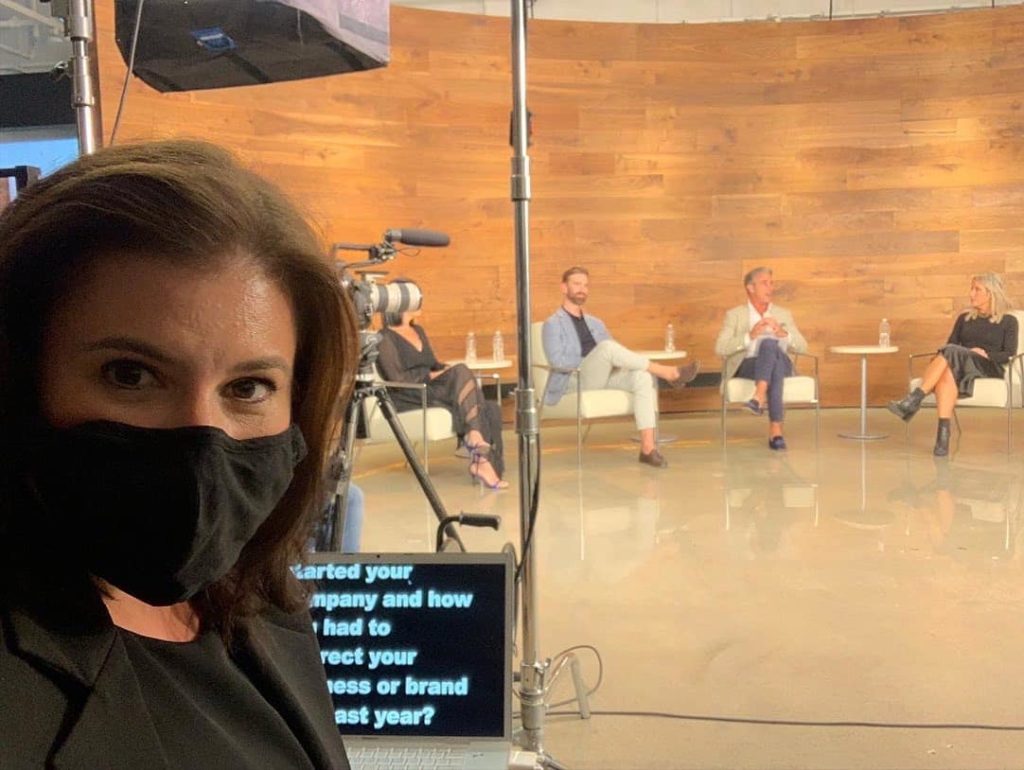
Absolutely. It’s almost like, serendipitously, that everything that you’ve experienced has come together full circle in what you’re doing today, which is tremendous. Thank you so much for being on.
You’re welcome. Thank you so much for having me. This was so much fun. Such a pleasure.
I`m so, so pleased.
Guys, I really hope that you got some true value from today’s show. And if there’s anyone in your wheelhouse that you feel needs to get this show, please send them all the various different links and let me just give you them again. Go over to the YouTube channel at The Open Just Confidence Academy. You can also check this out on our socials at Instagram and Facebook. Again, ‘The Transform Your Confidence Show,’ go to podcast platforms where you can just neatly search the name of the show, which is ‘The Transform Your Confidence Show.’
And again, if, like me, you just prefer to read. Hop on over to our blog at TheOpenChestConfidenceAcademy.com/media/podcast. I really enjoy every single week where I get to speak to tremendous people like Naomi.
I hope that you guys get a lot of things that you can add into your life, be it professional development or be at something for your business.
Until next week, please take care of yourselves.
To contact Naomi Parness: Web, LinkedIn, Facebook, Instagram, Twitter



